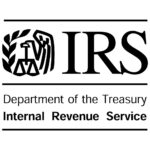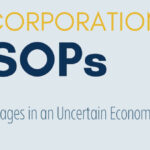Learn the basics about Employee Stock Ownership Plans:
- What is an ESOP?
- What are the Tax and Financial Advantages of an ESOP?
- Why Should Your Company Adopt an ESOP?
- What is the Philosophy of the ESOP?
- For more detailed articles on these subjects, click here.
What is an ESOP?
ESOP Definition: “ESOP” is an acronym that stands for Employee Stock Ownership Plan. Technically, the Plan is operated or administered pursuant to a tax-exempt Trust, referred to as ESOT, Employee Stock Ownership Trust. Accordingly, the Plan is alternatively referred to as the ESOP or the ESOT.
The purpose of an ESOP is to enable employees to acquire beneficial ownership in their Company without having to invest their own money.
The Plan is also a tax-exempt entity for Federal and state corporate income tax purposes. This enables the Company to make cash and/or Company stock contributions to the Trust, which are used to acquire stock of the Company on behalf of its employees. The advantage of the ESOP is that employees are able to acquire this stock without paying a current income tax on the stock. Again, this results from the fact that the contribution is made entirely by the Company and is not taxed to employees personally as it is allocated. The advantage to the Company is that the ESOP makes pre-tax dollars available to finance Company growth and/or to create ownership liquidity at the time of retirement.
Because employees are not taxed currently on the stock which is acquired for their benefit, they are able to acquire up to twice the amount of stock which they could acquire if a Trust arrangement were not used. That is, if shares of stock were issued to an employee by the Company, that employee would be taxed currently on the value of those shares. Also, if an employee buys stock directly from the Company or other shareholders, that employee is using “after-tax” funds rather than pre-tax dollars. The use of a Trust eliminates this tax problem since the Trust is not taxable and frees employees from income tax liability until the shares are distributed.
Although technically only in existence since 1974, the concept of Employee Stock Ownership Plans has been in the law since 1921 in the form of Stock Bonus Plans. Stock Bonus Plans, like Employee Stock Ownership Plans, are tax-exempt trusts which are designed to enable employees to own part or all of the company for which they work, without investing their own funds. The distinguishing feature of an ESOP is that an ESOP, unlike a Stock Bonus Plan, may engage in “leveraged” purchases of company stock. That is, an ESOP may acquire stock not only on a year-by-year basis, but also may borrow funds in order to purchase a block of stock.
From 1974 to date, it has been estimated that 22,000 companies have installed Employee Stock Ownership Plans. The total number of employees currently covered by ESOPs is about 14,100,000 with $1.4 trillion in ESOP assets (about 25% of the 401(k) market).
What are the Tax and Financial Advantages of an ESOP?
The ESOP enjoys a number of tax and financial advantages not enjoyed by other types of buyout alternatives, including the following:
- Under Section 1042 of the Internal Revenue Code, if the ESOP acquires 30% or more of the outstanding stock of a privately-held company, any capital gains tax on the transaction is deferred indefinitely, provided that the seller reinvests the proceeds in “qualified replacement property” within 12 months of the date of sale.
- Unlike a sale or merger, the ESOP enables the seller to sell any portion of his or her stock. A sale or merger usually requires the seller to sell 100% control.
- The ESOP enables the company to repay principal with tax-deductible dollars.
- Dividends paid on stock held by an ESOP are fully tax-deductible, provided that such dividends are either passed through to participants or are used to make principal or interest payments on an ESOP loan.
- In the case of an S corporation, the ESOP’s share of S corporation earnings is not subject to federal or state* corporate taxation or to taxation as “unrelated business income tax,” unless the ESOP runs afoul of certain “anti-abuse” provisions. Thus, in the case of an S corporation that is 100% owned by its ESOP, the company’s earnings will be entirely tax-exempt.
- An ESOP enables an owner to keep control until he is ready to fully retire. When the owner does retire, the ESOP enables the owner to pass control to his key employees.
- An ESOP enables an owner to provide for business continuity for the business that he has grown and nurtured over many years. Unlike a sale or merger, an ESOP enables a company to retain its separate identity rather than become a branch or division of a larger company.
- An ESOP enables a company to attract, retain and motivate key employees.
- Studies have shown that ESOP-owned companies become more productive and profitable than comparable firms in the same industry that are not ESOP-owned.
- An ESOP can be used to enable a company to make acquisitions of other companies with tax-deductible dollars. In addition, by using an ESOP the sellers can receive their proceeds tax-free under the provisions of Section 1042 of the Code.
*However, there are one or two states that arguably do not follow federal law with respect to the tax treatment of S corporation distributions received by an ESOP.
Why Should Your Company Adopt an ESOP?
The following advantages are material to the adoption of the Plan.
- The ESOP will enable the Company to buy out the current owners, using tax-deductible Company contributions.
- The ESOP will enable the employees to share in the current and future economic rewards of ownership.
- An ESOP will be a better incentive plan for employees than other alternatives.
The flexibility of the ESOP to not only invest in the stock of its own Company but to diversify its investments over a broad range of opportunities makes it a valuable retirement asset.
Click Here to Read More About Why You Should Consider an ESOP?









